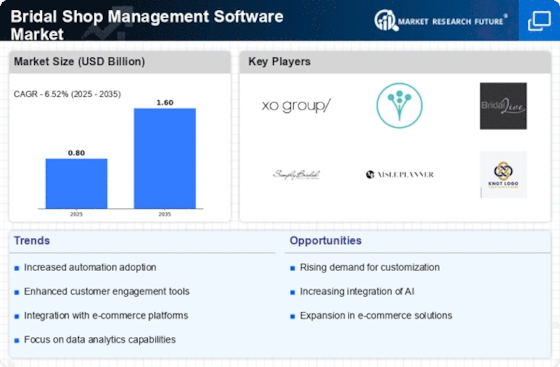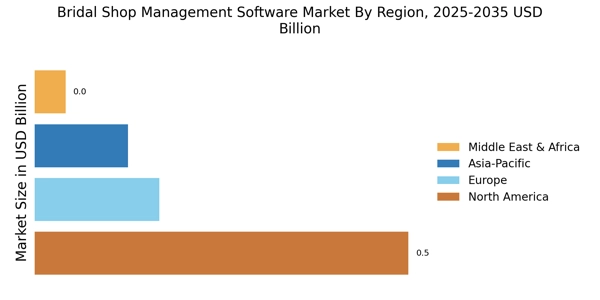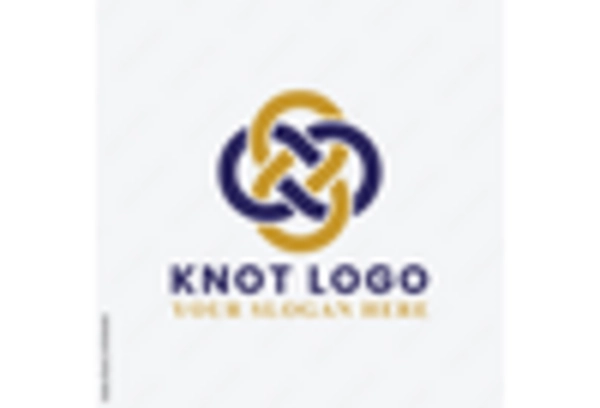Integration of Advanced Analytics
The Bridal Shop Management Software Market is witnessing a growing trend towards the integration of advanced analytics. Bridal shops are increasingly utilizing data analytics to gain insights into customer behavior, sales trends, and inventory management. This analytical approach allows shops to make informed decisions, optimize stock levels, and tailor marketing strategies effectively. Reports suggest that businesses employing data-driven strategies can improve their operational efficiency by up to 20%. As the demand for data-centric solutions rises, software providers are likely to enhance their offerings with robust analytics capabilities, enabling bridal shops to leverage data for strategic advantage.
Emergence of Subscription-Based Models
The Bridal Shop Management Software Market is experiencing a shift towards subscription-based models. This trend allows bridal shops to access advanced software solutions without the burden of high upfront costs. Subscription models provide flexibility and scalability, enabling shops to choose features that align with their specific needs. Recent analyses indicate that subscription-based software can reduce operational costs by approximately 30% compared to traditional licensing models. As more bridal shops recognize the financial and operational benefits of this approach, the adoption of subscription-based management software is expected to rise, fostering a more dynamic and responsive market environment.
Increased Demand for Digital Solutions
The Bridal Shop Management Software Market is experiencing a notable surge in demand for digital solutions. As bridal shops seek to streamline operations, the adoption of software that integrates inventory management, customer relationship management, and appointment scheduling becomes essential. According to recent data, the market for such software is projected to grow at a compound annual growth rate of approximately 12% over the next five years. This growth is driven by the need for efficiency and enhanced customer experiences, as bridal shops aim to cater to a tech-savvy clientele. The integration of digital tools allows for better tracking of sales and customer preferences, ultimately leading to improved service delivery and customer satisfaction.
Rise of E-commerce in the Bridal Sector
The Bridal Shop Management Software Market is significantly influenced by the rise of e-commerce within the bridal sector. As more consumers turn to online platforms for wedding-related purchases, bridal shops are compelled to adopt software solutions that facilitate online sales and inventory management. This shift is evidenced by a reported increase in online bridal sales, which has seen a growth rate of around 15% annually. Consequently, bridal shops that leverage management software to integrate their physical and online operations are likely to gain a competitive edge. The ability to manage both sales channels effectively not only enhances operational efficiency but also broadens market reach, allowing shops to cater to a wider audience.
Focus on Customer Experience Enhancement
The Bridal Shop Management Software Market is increasingly focused on enhancing customer experience. Bridal shops recognize that providing a personalized and seamless shopping experience is crucial for attracting and retaining clients. Software solutions that offer features such as virtual try-ons, personalized recommendations, and customer feedback mechanisms are becoming more prevalent. Data indicates that shops utilizing such software report higher customer satisfaction rates, which can lead to increased referrals and repeat business. As the market evolves, the emphasis on customer-centric solutions is likely to drive further innovation in bridal management software, ensuring that shops remain competitive in a crowded marketplace.

















